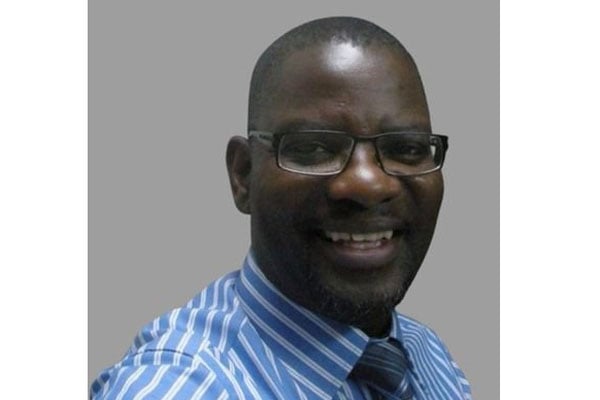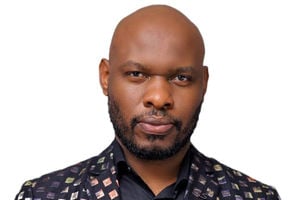Prime
Muhoozi is innocent. This is Museveni’s war

Author, Charles Onyango Obbo. PHOTO/FILE
What you need to know:
- Shortly after the coup in Guinea, he tweeted that if Museveni gave the order, the Uganda People’s Defence Forces (UPDF) would happily hasten to Conakry and sort out the coup makers.
The story goes that the Commander of Land Forces, Lt Gen Muhoozi Kainerugaba, who is President Yoweri Museveni’s son, is being a bad boy.
Muhoozi has been stirring trouble at home and abroad with his tweets on foreign countries.
Shortly after the coup in Guinea, he tweeted that if Museveni gave the order, the Uganda People’s Defence Forces (UPDF) would happily hasten to Conakry and sort out the coup makers.
More recently, perhaps in his most controversial tweet, he wrote that Uganda would battle anyone who would fight Egypt.
Coming at a time when Egypt is embroiled in a dispute with Ethiopia over Addis Ababa’s grand dam on River Nile, over which hardliners in Cairo have threatened war, clearly Muhoozi was throwing his lot with Abdel Fattah Al-Sisi. On social media, Ethiopians came at Muhoozi with daggers drawn.
In response, Muhoozi tweeted: “I don’t know why my brothers in Ethiopia are fighting me? It makes me sad. You are now fighting my tribe in Tigray...”
Many have criticised Muhoozi for being away with the fairies, and some even have alleged that he must be drinking something very strong. The army came out to defend him, saying he was speaking in his private capacity and was entitled to his opinion.
Both sides are wrong. Muhoozi’s tweets are not fuelled by some strange thing he’s drinking, nor are they are merely his opinion. To take either position is to be caught up counting the trees, instead of surveying the forest. In reality, the political stakes couldn’t be higher.
At the end of August Ethiopian Prime Minister Abiy Ahmed, whose government is embroiled in a deadly conflict with rebellious forces of its Tigray region, made a quick dash around the region. He met President Yoweri Museveni.
Ethiopian diplomats say Museveni offered to mediate in the conflict. Abiy allegedly didn’t take up Museveni’s offer.
Ethiopian diplomats believe Museveni felt snubbed and has given Muhoozi a wink to tweet to express his displeasure while handing him deniability should it backfire badly.
That, however, doesn’t answer why Museveni would feel personally injured by Abiy’s refusal to give him a mediation role. It’s also unlikely that on this Museveni would be so petty, so there must be more significant factors in play.
In the view of regional analysts, Eritrea, which allied with Addis Ababa to try and crash the Tigray People’s Liberation Front (TPLF), has been the biggest beneficiary of the conflict.
Its political hand is strengthened. It exacted revenge on its TPLF foe by killing thousands of Tigrayans, but also pillaged the region, looting everything that wasn’t nailed down, and destroying what it couldn’t carry away.
While the Tigrayans seem to have beaten both back, it isn’t clear whether in fact Abiy and Eritrean big man Isaias Afwerki pulled back to allow the TPLF’s worst instincts to play out. The TPLF has struck out further, probably over-extending itself, and losing the diplomatic edge it had gained.
However, Eritrea’s fortunes in the wake of the Tigray conflict is bad news for Museveni because of what it means for Somalia, where Uganda has been the key force in the African Union mission peace-making mission AMISOM. Eritrea has been widely seen as an al-Shabaab backer.
With elections approaching Somali politicians are wrangling dangerously. Then the US withdrawal from Somalia that was ordered by then US president Donald Trump last year has degraded America’s footprint there considerably.
The AMISOM mission could be unravelling. Museveni is not too happy. Early this month, he rounded on Somali politicians and threatened to withdraw the UPDF.
It is likely that in Kampala’s eyes, Abiy’s sin has been in indirectly enabling al-Shabaab by strengthening its alleged patron Afwerki through its alliance with him to bludgeon Tigray.
It’s a situation where Museveni would like to have leverage. When the Americans left Mombasa, they withdrew to continue their Somalia operations from the US military base in Djibouti, and Kenya’s Manda Bay. Last week Kenya’s President Uhuru Kenyatta attended a ceremony to upgrade the Manda Bay naval base.
So we have an Eritrea with improved strategic leverage at the Red Sea and mouth of the Gulf of Aden; a Somalia slipping into uncertainty and where Afwerki might call the shots if al-Shabaab rises again, and a militarily bulked out Kenyan coastal strip.
Geopolitically, this Indian Ocean is extremely unfavourable to Uganda’s (or at least Museveni’s) economic interests compared to the same time last year because of one more key factor; near the coastal border between Kenya and Tanzania, is Tanga. Tanga is the port where Uganda’s pipeline ends, a pipeline that Tanzania snagged after edging out Kenya.
The surprise here, then, is that Muhoozi is his father’s stalking horse, and it’s not Museveni himself who’s making direct digs at Ethiopia. Things are elephant.
Mr Onyango-Obbo is a journalist,
writer and curator of the “Wall of Great Africans”. Twitter@cobbo3





